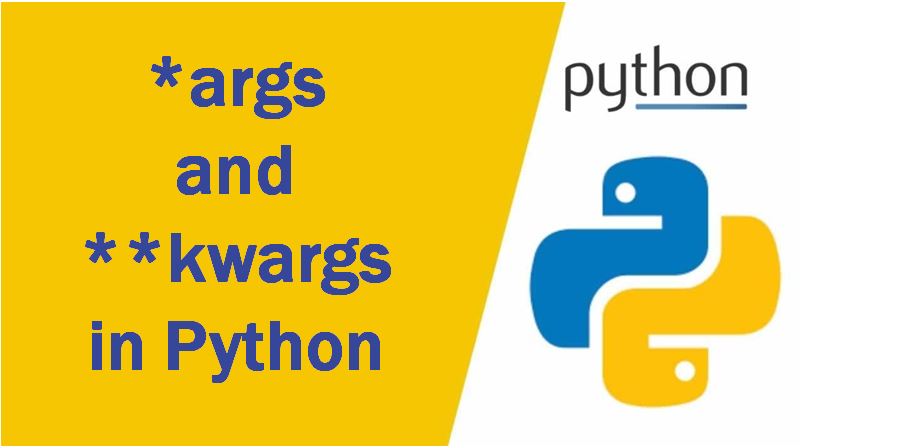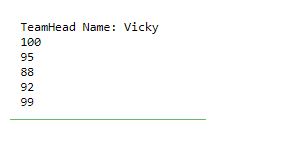
What Are *args and **kwargs in Python?
The generally associated operator with multiplication is splat operator, but in Python it doubles as the splat operator.
A simple example will make this clearer.
>>>x = [1,2,3] >>>y = [*a,7,8,9] >>>print(y) [1,2,3,7,8,9]
In the above example, we’re taking the contents of x and splattering that is unpacking it into our new list y.
How To Use *args and **kwargs?
The splat operator unpacks multiple values, and there are two types of function parameters namely *args short for arguments, and **kwargs short for keyword arguments.
Each of the parameter is used to unpack their respective argument type and allow function calls with variable-length argument lists. Let’s see with an example.
Example:
def printScores(TeamHead, *scores):
print(f"TeamHead Name: {TeamHead}")
for score in scores:
print(score)
printScores("Vicky",100, 95, 88, 92, 99)
Output:

In above example we have not used *args , because “args” is a standard convention but still just a name. The *args, a single asterisk is the main parameter here, creating a list whose elements are positional arguments — after those defined — from the function call.
With that cleared up, **kwargs should be an easy to digest. There is no matter with the name, but the double asterisks create a dictionary whose items are keyword arguments — after those defined — from a function call.
To illustrate this, let’s take an example.
def printNames(website, **courses):
print(f"Website Name: {website}")
for course,name in courses.items():
print(f"{course}: {name}")
printNames("i2tutorials", Programming="Python", Database=["Mongodb", "Cassandra", "MySql"], DataScience="MachineLearning")
Output:




